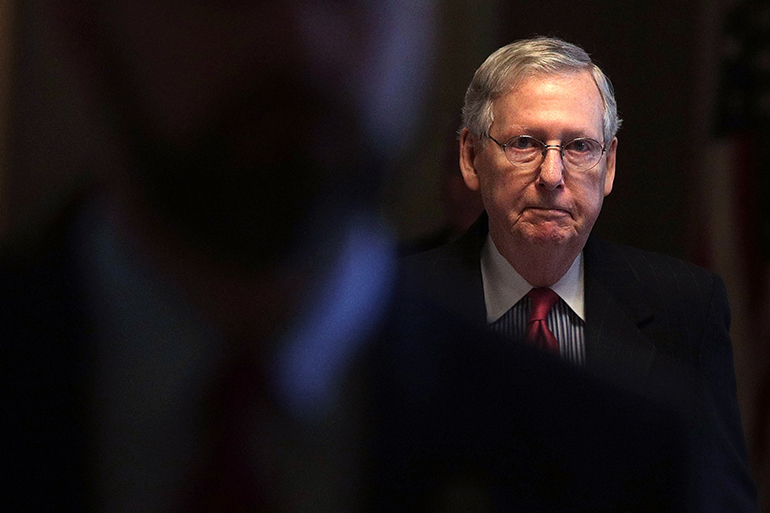As one senator’s health care emergency upended what was supposed to be an action-packed week for the Senate health care bill, Capitol Hill’s denizens began rebooking Monday.
Like T.J. Petrizzo, a lobbyist whose clients include children’s hospitals and cancer centers. On Monday afternoon, he was sitting alone in a nearly deserted Senate cafeteria looking at his phone.
“I cleared my calendar this week to do health care, health care, health care,” he said. “The intensity level has let off, but I’m still doing health care this week.”
The absence of Sen. John McCain (R-Ariz.), who is recovering at home from emergency blood clot surgery in his brain on Friday, has jammed the Senate’s plans. Without McCain, and with at least two senators opposed to the current bill, Senate Majority Leader Mitch McConnell doesn’t have the 50 votes he needs to move the measure.
Thursday’s expected vote on advancing the bill to a floor vote won’t happen now. The Congressional Budget Office didn’t release its analysis of the Senate’s revised bill on Monday as expected either. The online news service Axios reported that a senior Capitol Hill aide, who was unnamed, said it’s “highly unlikely” there will be a CBO report this week.
Uncertainty about the course ahead mounted with reports Monday that McCain’s recovery might take more than a week, leaving less time for action before the Senate’s scheduled recess starting Aug. 17.
“I didn’t think we’d still be talking about health care in the middle of July,” said one Democratic staffer.
“It seems like the vote is always ‘next week,’” said another.
The opposition party is seizing on the delay to mobilize resistance to the bill and keep up pressure for changes.
Sen. Dick Durbin (D-Ill.) tweeted Monday morning: “Here’s a radical idea @SenateGOP: use the time that Sen. McCain is gone to hold a public hearing on your latest health care repeal bill.”
When the Senate convened in the late afternoon, health care reform — the No. 1 issue on voters’ minds, according to a Bloomberg poll out Monday — was not on the agenda.
Instead, senators took up a matter that may be well under the public’s radar: the nomination of Patrick Shanahan for deputy secretary of defense. He was confirmed, 88-6.
This story was produced by Kaiser Health News, an editorially independent program of the Kaiser Family Foundation.
